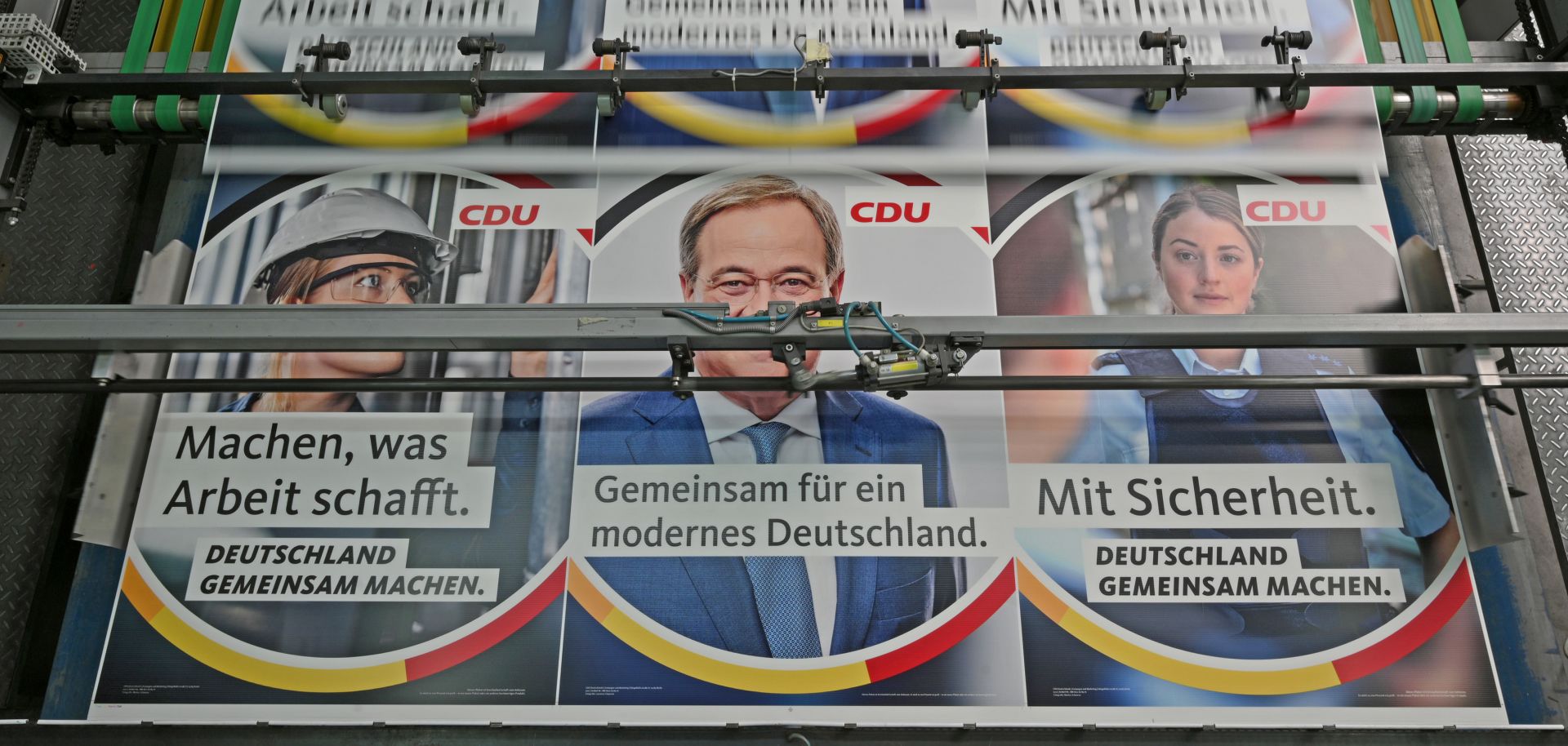Opinion polls suggest that the September federal election in Germany will result in a fragmented parliament and long negotiations to form a government. While a centrist coalition is the most likely outcome, the process could paralyze German and EU policymaking for months. Germany will hold a federal election on Sept. 26, the first in two decades where Chancellor Angela Merkel will not be a candidate. Recent surveys show that the popularity of Merkel’s conservative Christian Democratic Union (CDU) and its Bavarian sister party, the Christian Social Union (CSU), is on the rise, while the popularity of the environmentalist Greens is in decline. In the meantime, the rest of the parties are relatively stable. ...

